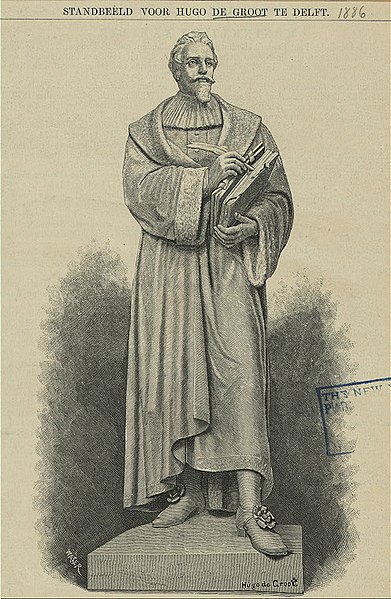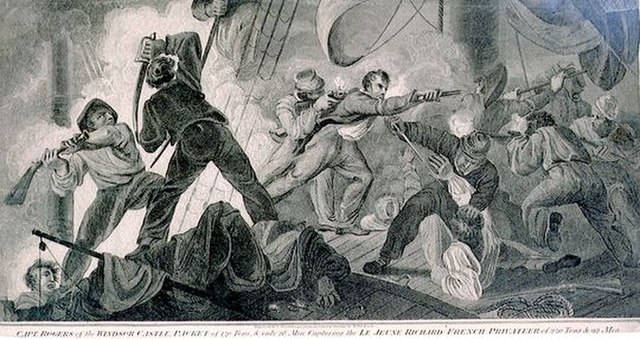Commerce raiding is a form of naval warfare used to destroy or disrupt logistics of the enemy on the open sea by attacking its merchant shipping, rather than engaging its combatants or enforcing a blockade against them.
The Bermuda Gazette of 12 November 1796, calling for privateering against Spain and its allies, and with advertisements for crew for two privateer vessels
In admiralty law prizes are equipment, vehicles, vessels, and cargo captured during armed conflict. The most common use of prize in this sense is the capture of an enemy ship and its cargo as a prize of war. In the past, the capturing force would commonly be allotted a share of the worth of the captured prize. Nations often granted letters of marque that would entitle private parties to capture enemy property, usually ships. Once the ship was secured on friendly territory, it would be made the subject of a prize case: an in rem proceeding in which the court determined the status of the condemned property and the manner in which the property was to be disposed of.
Blanche towing Pique, a French frigate captured as a British prize in 1795
Hugo de Groot, known as Grotius, a 17th-century Dutch academic prodigy known as the Mozart of international law, who wrote the 1604 Commentary on the Law of Prize and Booty
Captain Gideon Olmsted, who at age 20 commandeered the British sloop Active in a mutiny, and spent the next 30 years litigating a claim for prize money
Captain Rogers of the Windsor Castle packet of 150 tons & 28 men capturing the Jeune Richard French privateer of 250 tons & 92 men, 1807





